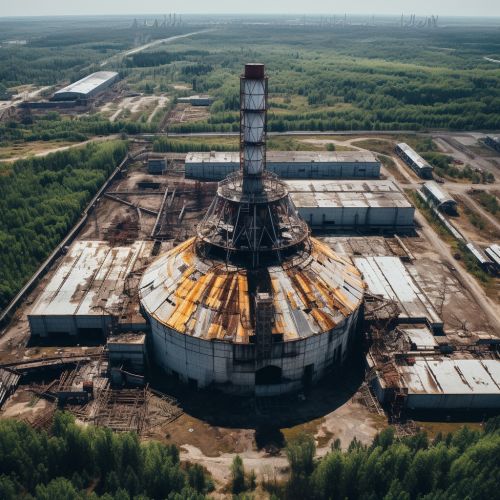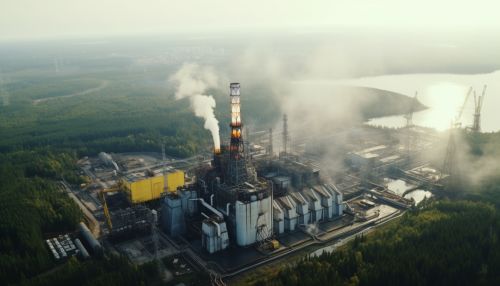Chernobyl disaster
Introduction
The Chernobyl disaster was a nuclear accident that occurred on 26 April 1986 at the No. 4 reactor in the Chernobyl Nuclear Power Plant, near the city of Pripyat in the north of the Ukrainian SSR in the Soviet Union. It is considered the worst nuclear disaster in history, both in terms of cost and casualties.


Background
The Chernobyl Power Complex, located 14.5 km northwest of the city of Chernobyl, consisted of four nuclear reactors of the RBMK-1000 design. The plant and the city were named after the nearby Pripyat River.
The Accident
On 26 April 1986, during a late night safety test simulating a station blackout power-failure, reactor 4 suffered a catastrophic power increase, leading to explosions in its core. This dispersed large amounts of radioactive particles into the atmosphere, which spread over much of Western USSR and Europe.
Causes
The accident occurred during a safety test on a common type of Soviet reactor, the RBMK-1000. The test was a simulation of an electrical power outage to aid the development of a safety procedure for maintaining reactor cooling water circulation until the back-up electrical generators could provide power.
Aftermath
The disaster had a significant impact on the surrounding environment, the people living in the area, and the world's perception of nuclear power. The immediate aftermath involved a massive cleanup operation, involving thousands of workers, known as "liquidators," who were put at extreme risk.
Health Impact
The health impact of the Chernobyl disaster is the subject of extensive debate. The World Health Organization (WHO) suggests that there may have been up to 4,000 additional cancer deaths among the most highly exposed populations.
Environmental Impact
The environmental impact of the Chernobyl disaster was immediate and long-term. The explosion and fire at the reactor spewed a large amount of radioactive particles into the atmosphere, which spread over a wide area.
Legacy
The legacy of the Chernobyl disaster is felt in many ways, from the direct impact on the environment and human health, to the changes it brought about in safety culture and the nuclear industry, to its influence on popular culture.
